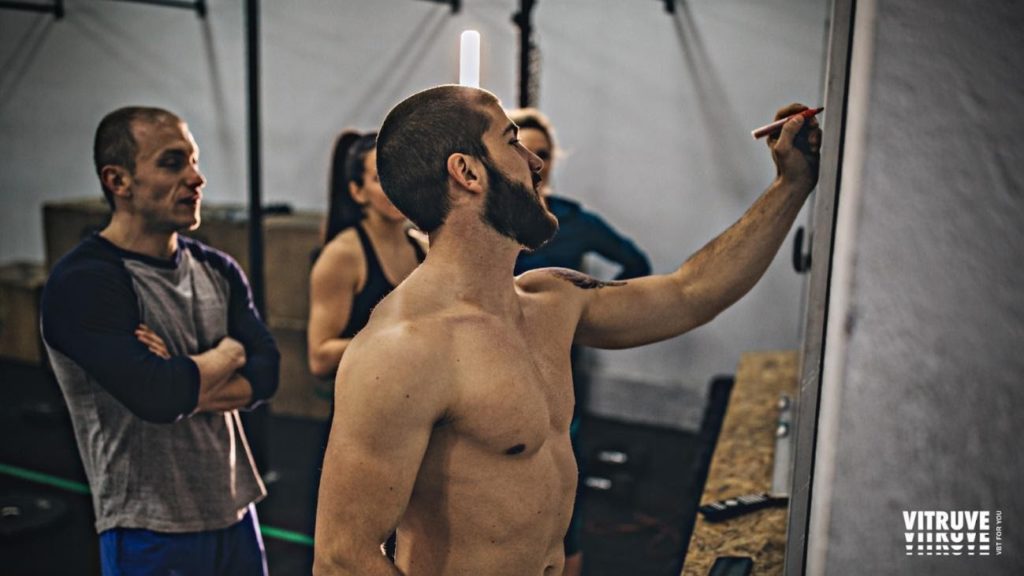24 de November de 2021
How Far Can The Mental Game Affect Sports
As a competitive athlete, one is dependent on being able to use one’s full sporting potential through mental strength. In these situations, in particular, the stress of competition, pressure to perform, and nervousness can stand in the way of maximum physical performance.
This is where mental training comes in. Mental strength can improve athletic performance and that can be trained. As a supplement to physical training, mental training creates the basis for more efficient training and stable performance in competitions.
Whether at the Olympic Games or other major sporting events such as the soccer world championship, whether a professional athlete or a recreational athlete: mental strength is an important issue in sport. To show performance in the decisive race, to persevere, and to get the last bit of strength and endurance out of yourself.
The role of psychology in elite sport
Many professional athletes come to a point in the course of their careers at which they can no longer call up their top performance. However, a physical cause cannot be found for this. A “blockade” is then often spoken of. So the head should be to blame. As soon as they manage to break this blockade, they suddenly get medals again and set new world records. Afterward, the explanation is that they allowed themselves to be put under too much pressure by their own expectations or those of others, or that they did not believe in themselves enough.
When asked about their preparation for a competition, many of the most successful athletes in the world speak not only of targeted training or a special diet but also of things like visualization, meditation, or mental training. What many professional athletes have already internalized may sound far-fetched to your ears: Your thoughts can have a negative or positive influence on your athletic performance. So you also have to “train” in your head.

Stress and relaxation are equally important
For most athletes, having the right balance between tension and relaxation is what makes the difference between winning and losing. And that the body pours out adrenaline in a stressful situation, whether in a competition or an exam, is a biological constant.
In order to deliver optimal performance, the adrenaline release must be controlled. This can be through breathing exercises, meditation, or autogenic training. Then athletes manage not to be distracted and to call up everything they have trained in strength, endurance, and technique every day. Only 30 percent of all athletes make it in a competition where it really matters to achieve the performance that they regularly show in training.
The power of positive thoughts
Some use hypnosis techniques to control tension, others use deep suggestions, still others relaxation exercises or positive self-talk. These so-called self-instruction techniques are easy for some people because they are already self-confident. Others have to learn this process in small steps. Like autogenic training, yoga, or the vocabulary of a foreign language, they train to empower themselves. This is just as difficult or easy for women as it is for men. There are no gender differences, just different personalities.

Being more proactive
Athletes strive to reach their potential by being open to new experiences and willing to learn. This helps them to grow, develop, and succeed. In this process, they aim to gain knowledge and skills to enhance their performance. It is critical that athletes accept and take responsibility for their beliefs, feelings, and behaviors. Growth will only occur when they accept their issues for what they are, that the past cannot be changed, only the present and future is in our hands, and are open to new insights and information. Following below are some quick tips for being proactive:
Reflection
- Ask questions – How can I move forward? Where do I see myself in the future?
- Monitor your mood by journaling every morning and night.
- Review your mood at the end of every 3 months.
Goal-Setting
- Define the areas that need to be improved (for example, more self-care, etc).
- Plan how much self-care you will do each day (e.g. 30 minutes) – review weekly.
- Be sure your targets are realistic, measurable, relevant, and appropriate (e.g. create a healthy sleep routine – stretch, read, do some expressive writing and a breathing exercise, then sleep).
Use fear to focus
Mental training is a complex task – at least from a scientific point of view. It encompasses a wide variety of aspects: motivational training, strengthening self-confidence, relaxation techniques, and also very conscious fear reduction. Because fear is not just fear. Fear of injury must be accompanied psychologically differently than fear of failure, for example.
Good athletes do not differ from average athletes in case of fear. Both are afraid, but the able-bodied deal with fear differently. They take this as a kind of energization, they can use appropriate instructions to adopt it as an argument to focus. While others simply see problems everywhere, in the area of performance, such feelings lead to interruptions.
Final Words
Often enough it has been shown in sports that the athlete with the greater mental strength took home victory in the end. Countless examples – from Kobe Bryant, who was known as an absolute disciplined workhorse, to Daniela Ryf, who wins races when others have to go to the hospital – have proven this.
It goes without saying that most athletes are not concerned with this. But it cannot hurt athletes either to include the mental component in our training. Because you not only benefit from it in sports, but under certain circumstances, you will also take effects with you for your private and professional life. Being able to deal better with setbacks is never wrong in life. In any case, you can get a lot out of your training and improve your performance with this adjustment screw.
In addition, It’s worth mentioning that there is no magic formula. Because sporting success includes good conditions, talent, hard work, will, daily form, weather, fitness level, and, of course, the psyche. Mental health is important – but it alone does not lead anyone to victory.

